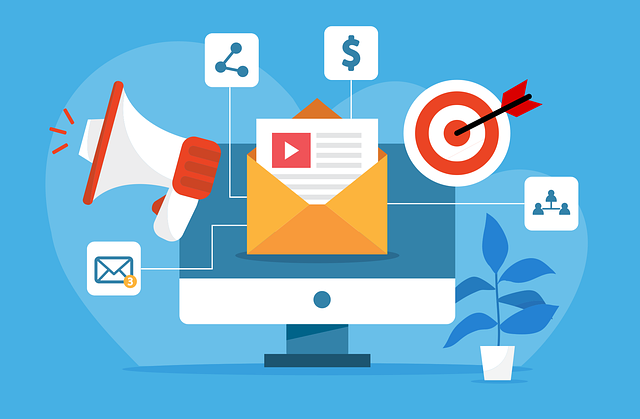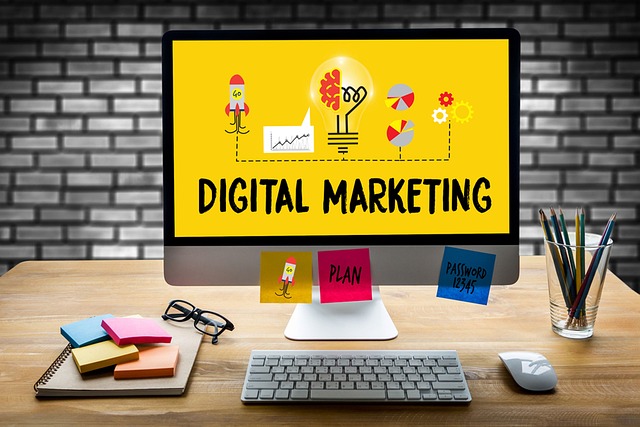AI chatbots revolutionize food truck management, particularly scheduling, by automating tasks, enhancing efficiency, and improving customer experience. These tools streamline operations, address inquiries promptly, and provide real-time updates. Integration into talent acquisition offers a transformative solution for variable staffing demands, improving response times and candidate experiences. Implementing AI chatbots for food truck scheduling involves defining objectives, choosing the right platform, designing conversational flows, training and testing, then integrating them into existing systems for streamlined operations and improved engagement.
“AI business talent acquisition automation is transforming the way food service companies manage their workforce, especially in complex areas like food truck scheduling. This article explores the revolutionary impact of AI chatbots on optimizing operations within the food industry. We delve into how these advanced tools streamline scheduling processes, enhancing efficiency and employee experiences. By implementing AI chatbots for food truck scheduling, businesses can significantly reduce manual labor, improve response times, and ensure optimal crew management.”
- Revolutionizing Food Truck Scheduling with AI Chatbots
- The Benefits of Automation in Talent Acquisition for Food Service Businesses
- Implementing AI Chatbots: A Step-by-Step Guide for Efficient Truck Management
Revolutionizing Food Truck Scheduling with AI Chatbots

In today’s digital era, revolutionizing traditional processes with Artificial Intelligence (AI) is no longer a concept but a reality. Food truck scheduling, for instance, has seen a game-changer emerge in the form of AI chatbots. These innovative tools are transforming the way food truck operators manage their operations by streamlining scheduling tasks, from accepting orders to allocating resources effectively.
AI chatbots for food truck scheduling offer numerous benefits. They can handle customer inquiries promptly, providing real-time updates on available trucks and estimated wait times. Moreover, these chatbots enhance overall efficiency by automating repetitive tasks, allowing human staff to focus on serving customers and ensuring a seamless dining experience. This technology is not just efficient but also ensures consistent and accurate communication between the food truck businesses and their clientele.
The Benefits of Automation in Talent Acquisition for Food Service Businesses

The introduction of automation in talent acquisition offers a game-changing opportunity for Food Service businesses, particularly those operating food trucks or restaurants with dynamic staffing needs. One of the most promising tools in this realm is AI chatbots, designed to streamline scheduling and recruitment processes. These intelligent virtual assistants can efficiently manage employee requests, availability, and shifts, eliminating the manual effort required in traditional scheduling methods.
For Food Service businesses, this automation brings numerous advantages. It improves response times to staffing requirements, ensuring that trucks or restaurants are fully staffed when needed. AI chatbots can also enhance candidate experience by providing prompt communication and feedback, reducing the time between application and hiring decisions. Moreover, these chatbots learn and adapt to individual preferences and skills, making talent pooling more effective and personalized for each business’s unique needs.
Implementing AI Chatbots: A Step-by-Step Guide for Efficient Truck Management

Implementing AI Chatbots for Food Truck Scheduling is a strategic move that streamlines operations and enhances customer engagement. Here’s a step-by-step guide to help you integrate this technology effectively:
1. Define Your Objectives: Begin by identifying specific goals, such as simplifying scheduling requests, managing inquiries, or even taking initial orders through the chatbot. Clearly outlining these objectives ensures your AI chatbot is tailored to meet your food truck business’s unique needs.
2. Choose the Right Platform: Select an AI chatbot platform that suits your requirements and budget. Consider features like natural language processing capabilities, integration options with existing systems (like POS software), and adaptability to handle complex interactions. A robust platform will enable you to create a sophisticated yet user-friendly scheduling tool.
3. Design Conversational Flows: Map out the conversation flow, from initial greetings to booking confirmations. Consider various user paths, including scheduling a new event, changing or cancelling bookings, and handling inquiries about food options or availability. A well-designed flow ensures your chatbot provides accurate information and guides users seamlessly.
4. Train and Test: Train the AI chatbot with relevant data, including typical customer queries and responses. Use real-world scenarios to teach it to understand and interpret user inputs accurately. After training, conduct thorough testing to identify and rectify any inaccuracies or potential bugs before deploying it live.
5. Integrate and Launch: Once your chatbot is trained and tested, integrate it into your scheduling system and launch it on your website or social media platforms. Ensure a smooth transition by monitoring its performance closely during the initial stages to make any necessary adjustments.
AI chatbots are transforming the way food service businesses manage their operations, and talent acquisition is no exception. By automating the scheduling process with these advanced tools, companies can efficiently organize staff shifts, improve productivity, and enhance overall crew management. This innovative approach not only saves time but also allows for a more streamlined hiring experience, ensuring that the right people are in place to keep food trucks running smoothly. As AI chatbots for food truck scheduling gain traction, businesses can look forward to a future where efficient talent acquisition goes hand in hand with optimized fleet operations.
